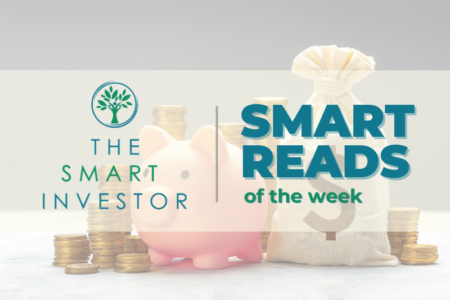It is sometimes said that mistakes are part of the dues that we are expected to pay for a full life. But it would be far better if we could avoid as many of the obvious ones as possible, especially when it comes to investing.
After all, Warren Buffett said there are two rules to investing: The first is never to lose money. The second is to never forget rule No 1.
So, the more mistakes that we can avoid, the less likely we are to lose money. It could also improve our investment returns. We will still make mistakes, though; it would be naive to think that we wouldn’t.
I’ve made a few in my time. However, the difference between good investors and those who continually struggle with investing is that successful investors not only learn from their own mistakes, they also learn from the mistakes of others.
What are some common mistakes that people make when they start out buying and selling shares? The first mistake we probably make is not knowing what to buy, and then buying the wrong stock. Picking stocks can be quite bewildering in the beginning as there are literally thousands of shares that we can choose from.
Too much choice, it seems, can sometimes be worse than having no choice at all. Consequently, many investors might turn to the man in the coffee shop, the friend next door or some throwaway tips in a chat room for inspiration. But those are probably some of the worst places to look for investing ideas because these people probably know less about investing than we do.
Circle of competence
Instead, it could be better to start with an industry that we may already be involved in. If we are a shopkeeper, our knowledge of the retail sector could even give us an edge over some professional analysts. If we are in the healthcare industry, then pharmaceuticals could be a good place to start. If we are in the leisure industry, we probably know a fair bit about the travel sector.
This is known as staying within our circle of competence. If we stick to things we know something about, then we should be better able to make informed decisions. We might be in a better position to assess risk and avoid costly mistakes. Over time, as we become more confident, we could expand our sphere of competence to include other industries. But it takes time.
Another common mistake is investing money that we may need in the near term. It is generally accepted that over the long term, the stock market delivers a better return for investors than other types of assets, including cash and bonds. However, if we are serious about investing in shares, then it is important to be prepared to invest for the long haul.
The five-year stretch
Typically, we should be prepared to leave the money invested for at least five years to reap the full benefits. In fact, the longer that we stay invested, the better it could be. But it might be hard to stay invested if we need the money desperately. What’s more, we might be forced to sell our shares at the worst possible time. So, we should not be tempted to punt for short-term wins.
Another common mistake many investors make is believing that they can consistently find the next 10-bagger, or a share that goes up 10-fold. It can be tempting to try. We may even find that we are lucky once or even twice, but we should never be lulled into believing that it is easy to unearth shares that rise quickly.
A better strategy is to treat the stock market as we would our current account. That means adding money to your portfolio when you have spare cash that you can afford to invest for the long term. Simply accept the fact that we can never time the market.
Time in the market
Another common mistake is to think that it is possible to make loads of money simply by buying and selling shares daily through correctly timing the market. Private investors make that mistake, but professional investors are guilty of that, too. But they have lots of money to play around with. Private investors don’t. We may sometimes hear day traders tell us that they have made a killing through day trading.
However, day traders, like gamblers, tend to have very selective memories. They can usually recount in detail how much money they made on some of their trades. But they can rarely remember their losses. The best way to profit from shares is to build a robust portfolio of investments. Then, invest little and often, including any dividends we receive, over the long term.
Let’s be clear, we will make mistakes when we invest. Peter Lynch, one of the finest investors of our generation, said: “To come out ahead, we don’t have to be right all the time, or even a majority of the time.”
That means building a solid portfolio of robust investments. That is something that I do religiously because I know that I am not going to be right all the time.
First-time investors: We’ve finally released our Beginner’s Guide. Read it in an afternoon, follow the principles, pick an investing style and buy your first SGX stocks within the next few hours! Click here to download it for free.
Follow us on Facebook, Instagram and Telegram for the latest investing news and analyses!
An earlier version of this article appeared in The Business Times.
Disclosure: David Kuo does not own shares in any of the companies mentioned.





